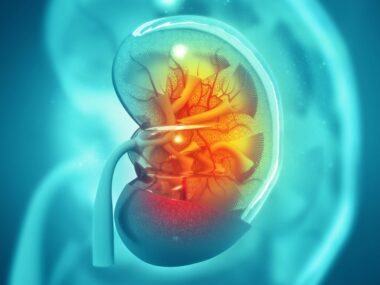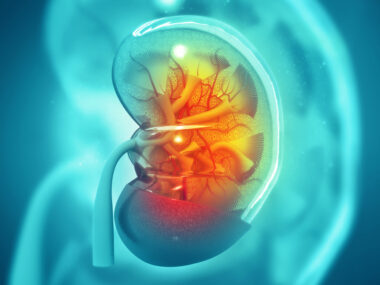Calcium Citrate May Be More Tolerable Alternative to Calcium Carbonate
Written by |

Calcium citrate was as effective as calcium carbonate at sustaining normal calcium levels in people with hypoparathyroidism, but was associated with fewer gastrointestinal side effects and a potentially lower risk of nephrolithiasis, or kidney stones, according to a study.
“These results are likely to have clinical implications in [hypoparathyroidism], particularly those who do not tolerate [calcium carbonate] and those affected by nephrolithiasis,” the researchers wrote, adding that, “a longer-term experience is needed to confirm these findings.”
The study, “Calcium citrate versus calcium carbonate in the management of chronic hypoparathyroidism: a randomised, double-blind, crossover clinical trial,” was published in the Journal of Bone and Mineral Research.
Hypoparathyroidism is marked by low levels of the parathyroid hormone, resulting in hypocalcemia, or calcium deficiency. Standard treatment involves oral calcium supplements to help replenish calcium levels, along with vitamin D supplements.
Calcium carbonate is frequently used because it contains high levels of calcium. It can be associated with gastrointestinal side effects such as flatulence, constipation, and bloating, however.
Calcium citrate can be used instead of calcium carbonate to avoid these side effects. It may also prevent kidney stones — a painful product of mineral buildup in the kidneys — for which hypoparathyroidism patients are at an increased risk.
No studies have directly assessed how well calcium citrate might work in patients with chronic hypoparathyroidism.
A research team conducted a randomized clinical trial (NCT03425747) to compare the effects of calcium carbonate and calcium citrate on blood calcium levels, signs of kidney stone risk, and quality of life among 24 adults with chronic hypoparathyroidism resulting from thyroid removal surgery.
All of the patients were recruited from a clinic at Campus Bio-Medico University in Rome, Italy. Their mean age was 54.7 years and 87.5% were women. The study used a crossover design wherein every patient consecutively received both treatments — each for one month in random order.
Doses of calcium and vitamin D were determined for each participant based on what they’d been using before the study began. The calcium dose was adjusted throughout as needed. Adherence to a specific calcium-rich diet was supervised by a dietician during treatment.
Blood and urine tests showed no differences in calcium and phosphorus levels (which are usually elevated in hypoparathyroidism) between the two calcium formulations.
However, the oxalate/creatinine ratio — a waste product from the kidneys — was significantly reduced during calcium citrate treatment compared to the period with calcium carbonate. Oxalate is an end product of vitamin C and amino acids (the building blocks of proteins) that can lead to kidney stones when overproduced. Creatinine is a waste product that indicates kidney problems.
The AP(CaOx) index, a way to evaluate risk factors for kidney stones, did not show significant differences between the two calcium forms.
After one month of treatment with calcium carbonate, seven people (30.4%) experienced constipation, compared to one person who received calcium citrate. Quality of life scores did not differ between the groups, but the study may not have been long enough to assess such changes, the research team noted.
“In this prospective double-blind cross-over trial we showed that [calcium citrate] is as effective as [calcium carbonate] in maintaining target calcium levels in chronic post-surgical [hypoparathyroidism],” the researchers wrote, adding that calcium citrate may be a good alternative for patients who do not tolerate calcium carbonate or who are affected by kidney stones.
Longer studies in larger groups of patients — including those with nonsurgical causes of hypoparathyroidism — will help further establish the effectiveness of calcium citrate, the researchers said.






